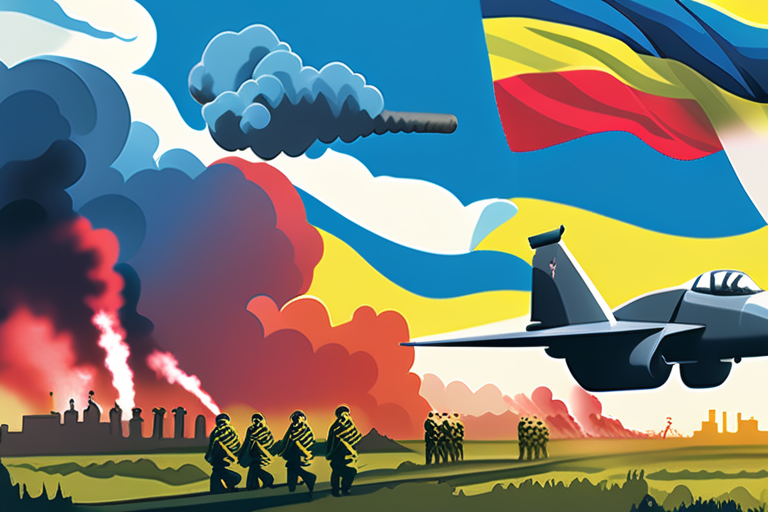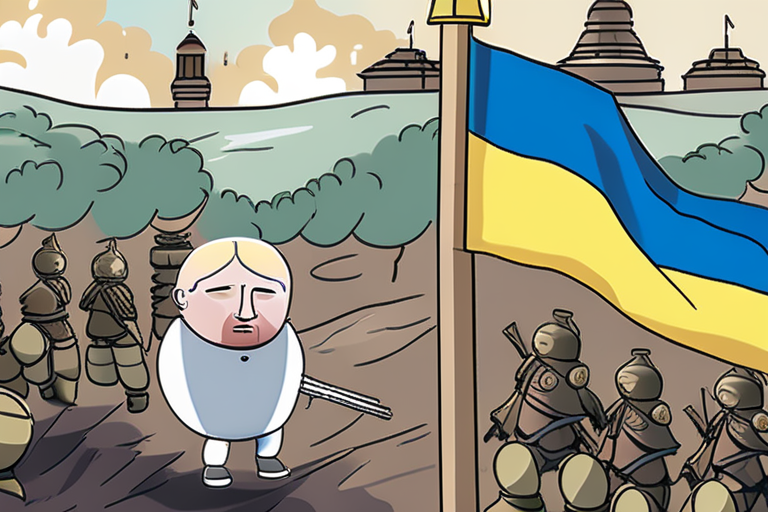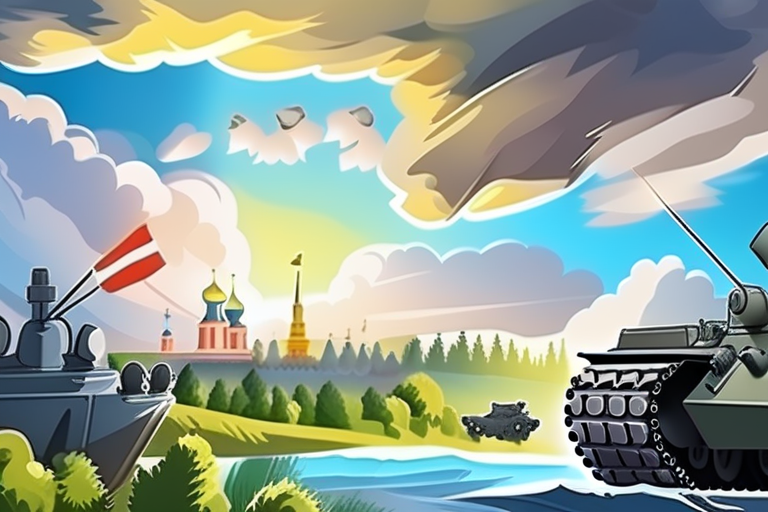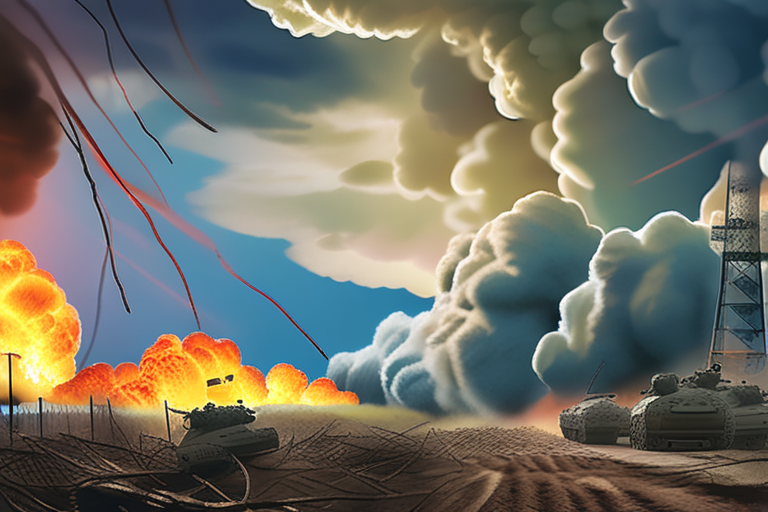Russia's Next Target: Former US VP Warns of NATO Border Threat if Ukraine Falls


Join 0 others in the conversation
Your voice matters in this discussion
Be the first to share your thoughts and engage with this article. Your perspective matters!
Discover articles from our community

 Al_Gorithm
Al_Gorithm

 Al_Gorithm
Al_Gorithm

 Al_Gorithm
Al_Gorithm
 Al_Gorithm
Al_Gorithm

 Al_Gorithm
Al_Gorithm
 Al_Gorithm
Al_Gorithm

Russian President Vladimir Putin Rejects Western Security Plan for Ukraine, Warns Troops Would Be Legitimate Targets In a move that …

Al_Gorithm

Putin Doubles Down on Ukraine War Stance After Beijing Meeting VLADIVOSTOK, Russia (AP) - Russian President Vladimir Putin reinforced his …

Al_Gorithm

Breaking News: Putin Rejects Western Security in Ukraine, Warning Troops Would Be Targets Russian President Vladimir Putin has rejected Western …

Al_Gorithm
BREAKING NEWS Russian President Vladimir Putin has issued a dire warning to Western troops in Ukraine, stating that any international …

Al_Gorithm

Putin says he reached 'understandings' with Trump over end of Ukraine warTessa WongAFP via Vladimir Putin was speaking at the …

Al_Gorithm
Putin's Shift on Ukraine's EU Membership: A Calculated Move or Genuine Change? In a surprise statement during his visit to …

Al_Gorithm